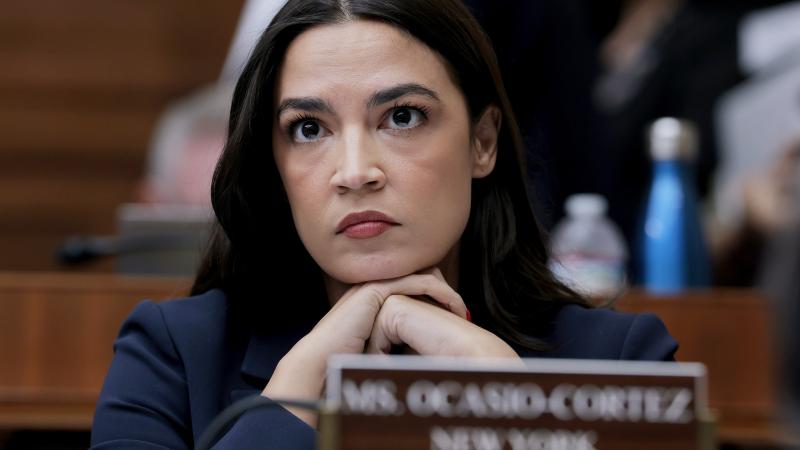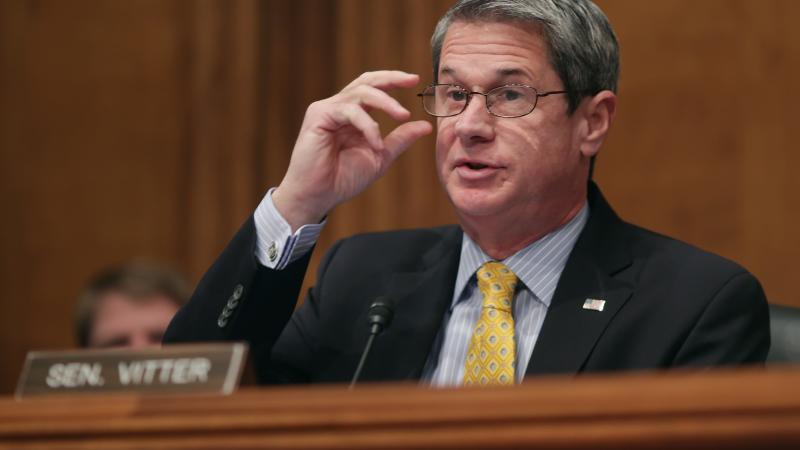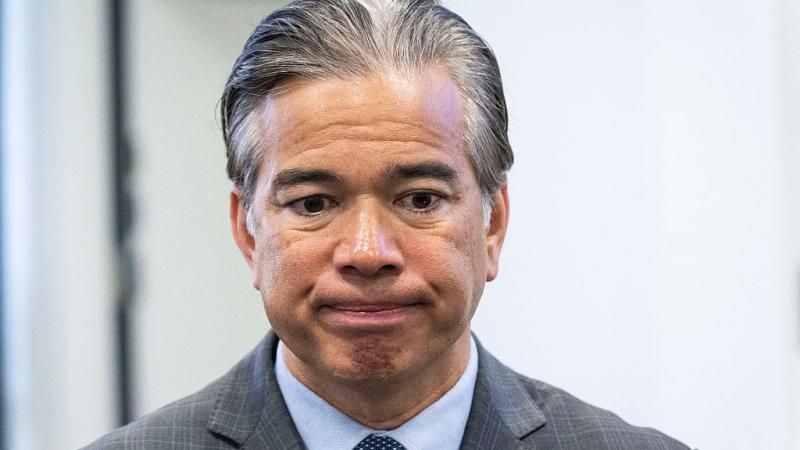TikTok legislation faces rocky road in Senate after overwhelming passage in the House
Concerns by a leading Democrat committee chair and the noncommittal stance of the Senate Leader threaten to delay or sink the divestment bill.
The "TikTok divestment bill" faces a rocky road in the Senate after a key Senate Democratic committee chair expressed apprehension about the legislation.
In comments to reporters on Monday, Senator Maria Cantwell, D-Wash., criticized the bill that would force TikTok’s parent company to divest ownership of the popular social media platform or face a ban because of its ties to the Chinese Communist Party. Cantwell chairs the Senate Commerce Committee, which would have jurisdiction over the House-passed bill if the Senate Majority Leader refers it to the committee.
The TikTok divestment legislation passed overwhelmingly with bipartisan support in the House—by a 352-65 margin—after the Energy and Commerce Committee had unanimously approved of the measure and sent it to the floor. Since its passage, both GOP and Democratic Senators have announced their support for the measure and the White House has called for swift action.
But, despite the support it has garnered, the passage of the bill also galvanized the opposition, which is being led by TikTok, a coalition of donors and nonprofits, and an unlikely alliance of conservatives and progressives, Just the News reported last week.
President Biden indicated that he will sign the bill if and when it arrives on his desk. Biden previously banned TikTok from the government devices of over 4 million federal employees in 2022, a sign of the perceived dangers of the social media platform.
Monday night Senator Cantwell told reporters she thinks the TikTok bill “could be better,” warning that it may not stand up to legal scrutiny if its signed into law. The senator explained her concerns that the bill represents an effort by Congress to determine what constitutes a threat rather than delegating the authority to the executive branch—which she believes is a more legally sound way to legislate on TikTok.
"But the House, in this world of Trumpisms and everything else, is worried about giving anybody [the White House, the Commerce Department] that authority,” she said.
“But you also can’t, as a Congress, just decide one day, ‘Ah!’ And pass a law. Well, you can, I just don’t know if it’ll hold up in court… Let’s get something that can be upheld,” she added.
In fact, Cantwell’s opposition to the proposal may stem from the fact that she has her own rival legislation to the divestment bill, the "GUARD Act", which would empower the administration to make decisions about whether a foreign-owned app constitutes a threat.
“If you’re doing something deleterious to U.S. citizens or the military, that was like a big bright line to put into statute. And guess what? Legal people think you can really uphold that in court,” Cantwell said of her approach in the GUARD Act. Senator Cantwell’s proposed legislation, however, has not advanced because there are no Republican cosponsors.
Senator Cantwell did not respond to a request for comment from Just the News.
Last month, Politico noted that Cantwell has her own connection to TikTok. Rosemary Gutierrez, the senator’s former deputy chief of staff and acting legislative director, joined Mehlman Consulting in June 2021 and almost immediately started lobbying on behalf of TikTok even as her former boss became one of the leading critics of the divestment bill. In the fourth quarter of 2023, a total of twelve Mehlman lobbyists were working for TikTok.
Despite previous opposition, Cantwell did not rule out an eventual vote on the House-passed legislation, but continued to prefer what she calls her own “more robust” legislation.
When asked about her former staffers work for TikTok, the senator reportedly laughed and said “I didn't even know that,” according to Politico.
Gutierrez did not respond to a request for comment from Just the News.
Cantwell is among a handful of other senators who have argued slowing down the consideration of the TikTok divestment bill, known as the RESTRICT Act, to ensure enough time for deliberation and fixes. Though this strategy has been criticized by other senators who fear the delay will allow TikTok—and its parent company ByteDance—to assemble a more robust coalition to advocate against the bill.
“They will try to kill this slowly, refer it to committee … think about it some [more] and this time next year we’ll be right here having the same conversation,” Senator Josh Hawley, R-Mo., told The Washington Post.
So far, Senate Majority Leader Chuck Schumer has not made any moves on the TikTok bill, only promising that the Senate would address the measure “in the weeks and months ahead.” Senator Schumer has not announced whether or not he individually supports the bill.
Senator Mitch McConnell, the chamber’s minority leader, announced his support for the bill Monday.
“This is the matter that deserves Congress' urgent attention, and I'll support common sense bipartisan steps to take one of Beijing's favorite tools of coercion and espionage off the table,” the Republican said during a speech on the Senate floor.
He also pushed back on arguments that the legislation would not pass legal muster. “Requiring the divestment of Beijing-influenced entities from TikTok would land squarely within established constitutional precedent," McConnell said.















